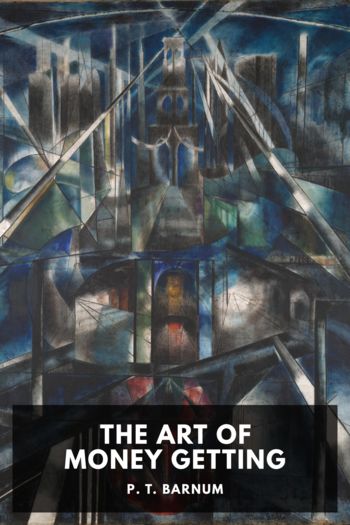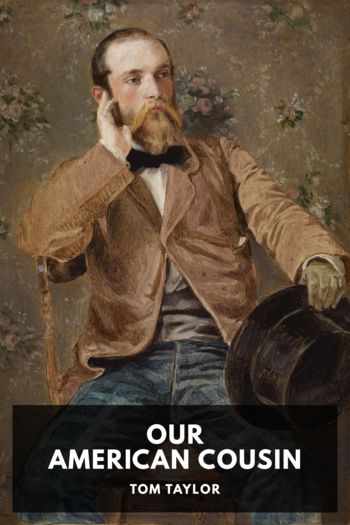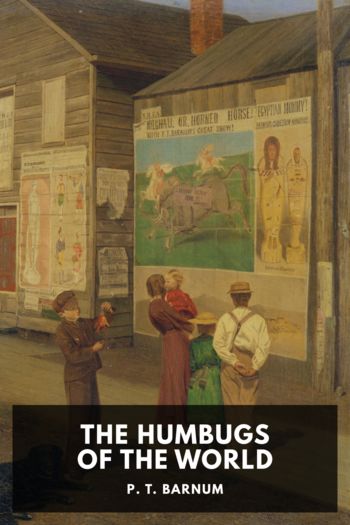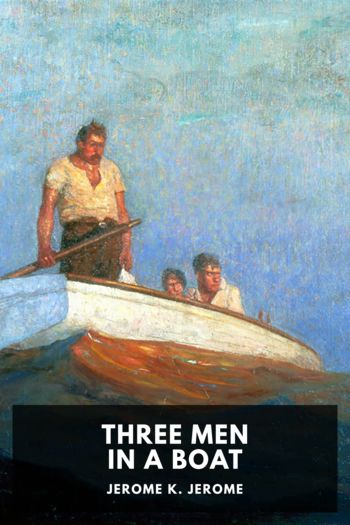Struggles and Triumphs by P. T. Barnum (love novels in english TXT) 📕

- Author: P. T. Barnum
Book online «Struggles and Triumphs by P. T. Barnum (love novels in english TXT) 📕». Author P. T. Barnum
On January 1, 1845, my engagement with the General at a salary ceased, and we made a new arrangement by which we were equal partners, the General, or his father for him, taking one-half of the profits. A reservation, however, was made of the first four weeks after our arrival in New York, during which he was to exhibit at my Museum for two hundred dollars. When we returned to America, the General’s father had acquired a handsome fortune, and settling a large sum upon the little General personally, he placed the balance at interest, secured by bond and mortgage, excepting thirty thousand dollars, with which he purchased land near the city limits of Bridgeport, and erected a large and substantial mansion, where he resided till the day of his death, and in which his only two daughters were married, one in 1850, the other in 1853. His only son, besides the General, was born in 1851. All the family, except “little Charlie,” are of the usual size.
After spending a month in visiting his friends, it was determined that the General and his parents should travel through the United States. I agreed to accompany them, with occasional intervals of rest at home, for one year, sharing the profits equally, as in England. We proceeded to Washington city, where the General held his levees in April, 1847, visiting President Polk and lady at the White House—thence to Richmond, returning to Baltimore and Philadelphia. Our receipts in Philadelphia in twelve days were $5,594.91. The tour for the entire year realized about the same average. The expenses were from twenty-five dollars to thirty dollars per day. From Philadelphia we went to Boston, Lowell, and Providence. Our receipts on one day in the latter city were $976.97. We then visited New Bedford, Fall River, Salem, Worcester, Springfield, Albany, Troy, Niagara Falls, Buffalo, and intermediate places, and in returning to New York we stopped at the principal towns on the Hudson River. After this we visited New Haven, Hartford, Portland, ME, and intermediate towns.
I was surprised to find that, during my long absence abroad, I had become almost as much of a curiosity to my patrons as I was to the spinster from Maine who once came to see me and to attend the “services” in my Lecture Room. If I showed myself about the Museum or wherever else I was known, I found eyes peering and fingers pointing at me, and could frequently overhear the remark, “There’s Barnum.” On one occasion soon after my return, I was sitting in the ticket-office reading a newspaper. A man came and purchased a ticket of admission. “Is Mr. Barnum in the Museum?” he asked. The ticket-seller, pointing to me, answered, “This is Mr. Barnum.” Supposing the gentleman had business with me, I looked up from the paper. “Is this Mr. Barnum?” he asked. “It is,” I replied. He stared at me for a moment, and then, throwing down his ticket, exclaimed, “It’s all right; I have got the worth of my money”; and away he went, without going into the Museum at all!
In November, 1847, we started for Havana, taking the steamer from New York to Charleston, where the General exhibited, as well as at Columbia, Augusta, Savannah, Milledgeville, Macon, Columbus, Montgomery, Mobile and New Orleans. At this latter city we remained three weeks, including Christmas and New Year’s. We arrived in Havana by the schooner Adams Gray, in January, 1848, and were introduced to the Captain-General and the Spanish nobility. We remained a month in Havana and Matanzas, the General proving an immense favorite. In Havana he was the especial pet of Count Santovania. In Matanzas we were very much indebted to the kindness of a princely American merchant, Mr. Brinckerhoff. Mr. J. S. Thrasher, the American patriot and gentleman, was also of great assistance to us, and placed me under deep obligations.
The hotels in Havana are not good. An American who is accustomed to substantial living, finds it difficult to get enough to eat. We stopped at the Washington House, which at that time was “first-rate bad.” It was filthy, and kept by a woman who was drunk most of the time. Several Americans boarded there who were regular gormandizers. One of them, seeing a live turkey on a New Orleans vessel, purchased and presented it to the landlady. It was a small one, and when it was carved, there was not enough of it to “go round.” An American, (a large six-footer and a tremendous eater,) who resided on a sugar plantation near Havana, happened to sit near the carver, and seeing an American turkey so near him, and feeling that it was a rare dish for that latitude, kept helping himself, so that when the carving was finished, he had eaten about one half of the turkey. Unfortunately the man who bought it was sitting at the further end of the table, and did not get a taste of the coveted bird. He was indignant, especially against the innocent gormandizer from the sugar plantation, who, of course, was not acquainted with the history of the turkey. When they arose from the table, the planter smacked his lips, and patting his stomach, remarked, “That was a glorious turkey. I have not tasted one before these two years. I am very fond of them, and when I go back to my plantation I mean to commence raising turkeys.”
“If you don’t raise one before you leave town, you’ll be a dead





Comments (0)